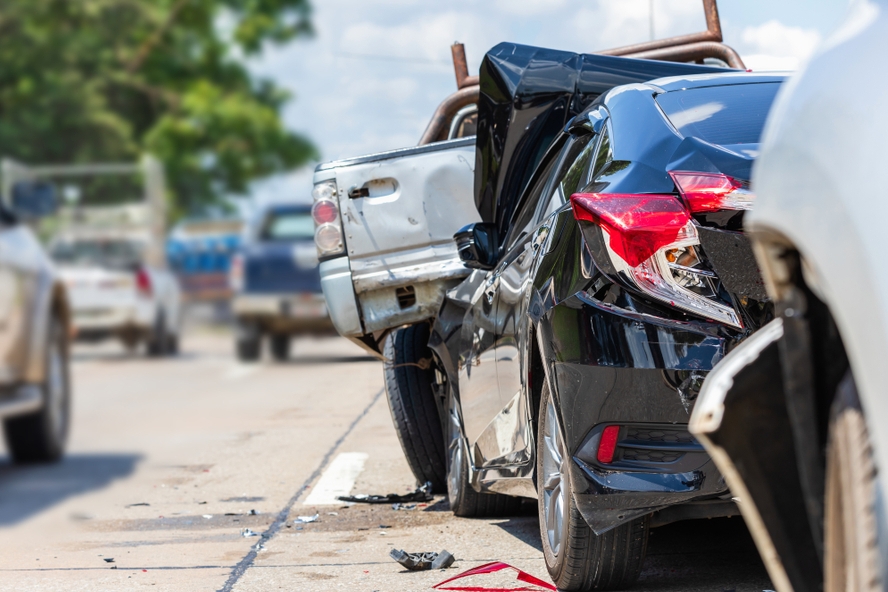
Understanding Liability and Your Legal Options in Fairfax County
A serious crash can happen in seconds, but the physical, emotional, and financial fallout can last for months or even years. If you were hurt in a multi-vehicle accident in Fairfax County, you may be dealing with painful injuries, car repairs, missed work, and frustrating insurance delays. It’s a lot to handle, especially when you're still trying to recover.
At MacDowell Law Group, we understand the confusion and stress that follow these types of crashes. This blog will walk you through what steps to take, what Virginia law says about liability, and how to protect your rights if another driver’s actions contributed to your injuries.
A Stark Reminder: Recent Crash on Route 7969
On July 11, 2025, a major crash near the intersection of Route 7969 and Fairfax County Parkway shut down both directions of traffic. Emergency responders rushed to the scene to treat and transport multiple injured victims. According to Local Accident Reports, authorities called it a “major incident” due to the severity and disruption caused across the region.
Crashes like this are a stark reminder that life can change in an instant. Knowing your rights and what steps to take next can make a big difference in how you recover.
Why Multi-Vehicle Accidents Are So Complicated
When more than two vehicles are involved, assigning fault gets complex. One driver’s careless action (like tailgating, running a red light, or texting while driving) can set off a chain reaction. But figuring out exactly what happened and who’s responsible often requires digging deep into the details.
Your legal team may need to:
- Review police and accident reports
- Analyze photos and dashcam footage
- Reconstruct the scene
- Interview witnesses
- Examine the behavior of each driver before the crash
In Northern Virginia, multi-vehicle crashes are especially common on high-traffic roads such as I-66, Route 28, Route 50, Route 123, and the Capital Beltway (I-495). These crashes often happen during rush hour or in poor weather, when visibility and road conditions can quickly deteriorate. Accidents on roads like Route 7969, including the recent major collision, can lead to serious injuries, road closures, and complicated questions about who is responsible.
Understanding Virginia’s Contributory Negligence Rule
Virginia applies one of the strictest negligence laws in the country: the contributory negligence rule. Under this rule, if you are found even slightly at fault (just 1%) for the accident, you may be barred from recovering any compensation from the other driver’s insurance.
This can be a harsh outcome, especially in complex crashes where insurance companies often look for ways to shift blame. Even a seemingly minor action, like braking too late or changing lanes without signaling, could be used to argue that you share fault.
Because of this, it’s critical to have strong evidence and an experienced attorney in your corner. A lawyer can help protect your rights by thoroughly investigating the crash, gathering supporting documentation, and presenting your case clearly. They’ll also communicate with insurance companies on your behalf to prevent statements from being taken out of context or used against you.
Your Legal Rights After a Multi-Car Crash
If someone else’s negligence caused or contributed to the crash, you may have the right to pursue compensation. This might include:
- Emergency care and medical bills
- Physical therapy and ongoing treatment
- Lost wages or reduced income
- Pain, suffering, and emotional distress
- Damage to your vehicle or other property
In rare but serious cases, you may also be able to pursue punitive damages; especially if the at-fault driver was intoxicated, aggressive, or knowingly broke safety laws.
What to Do After a Crash
Here are practical steps to protect your health and your legal rights:
- Call 911 and request medical help. Always err on the side of caution.
- Move to safety if possible. Don’t argue or admit fault.
- Take photos of the vehicles, scene, injuries, and road conditions.
- Get names and contact info for all drivers and witnesses.
- Avoid recorded statements to insurance companies until you’ve spoken with an attorney.
- Contact a lawyer who handles serious car accident cases in Fairfax County.
How MacDowell Law Group Can Help
We know how overwhelming this process can feel and we’re here to make it easier. When you hire MacDowell Law Group, our legal team will:
- Investigate the full circumstances of your crash
- Communicate with the insurance companies on your behalf
- Identify who’s responsible and how much your case is worth
- Negotiate for the compensation you need and deserve
- Represent you in court, if necessary
Our firm serves clients throughout Fairfax County and across Northern Virginia, including Vienna, Reston, Arlington, Alexandria, Tysons, McLean, Falls Church, and other nearby communities. Whether your crash happened on Route 7969 or another Northern Virginia roadway, we’re ready to help you move forward with confidence.
Don’t Miss Your Deadline to File
In Virginia, you typically have two years from the date of the crash to file a personal injury claim. But waiting too long can weaken your case. Evidence may disappear, witnesses may forget key details, and insurance companies may use the delay against you.
Talking to a personal injury lawyer sooner rather than later is one of the most important steps you can take.
Schedule a Free Consultation Today
If you or someone you love was hurt in a multi-vehicle crash in Fairfax County, you don’t have to face the aftermath alone. Contact MacDowell Law Group for a free, confidential consultation. We’ll explain your rights, answer your questions, and help you determine the best path forward.
Disclaimer: This blog is for general informational purposes only and does not constitute legal advice. Reading this content or contacting our firm does not create an attorney-client relationship. Legal outcomes depend on the specific facts of your situation. Please consult with a qualified attorney to discuss your case.
